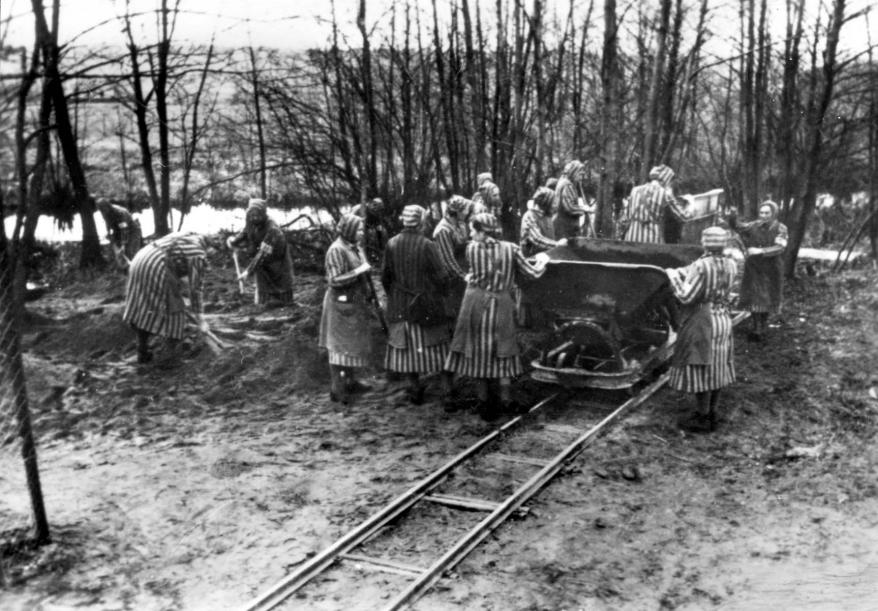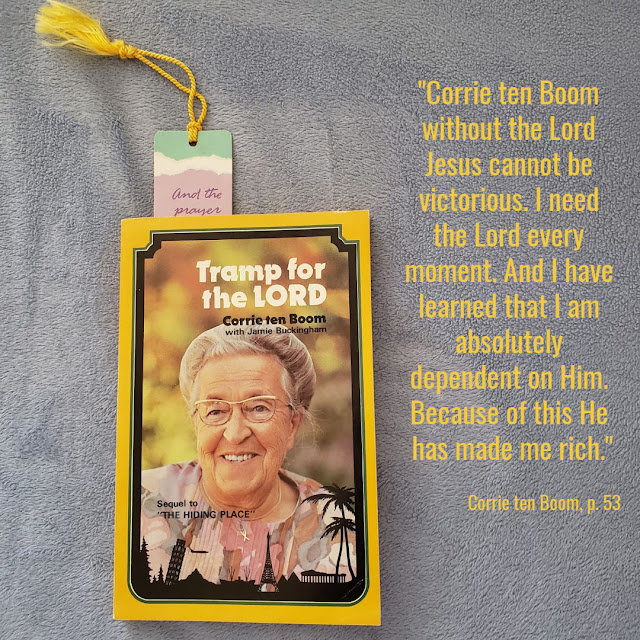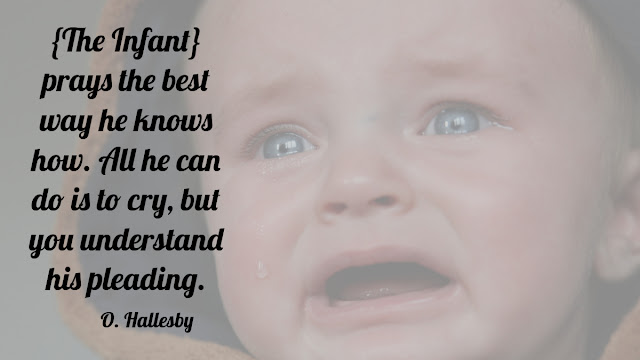 |
| I took the photo of the book cover from my own copy and added the quote. |
Released from Ravensbrück with a Message for the World
Corrie ten Boom's family worked for the Dutch Resistance when the Nazis occupied their land of Holland during World War II. Corrie wrote of their activities and their consequences in her first book, The Hiding Place.Until she was fifty years old, Corrie had lived with her family above the watch shop her father owned. After the Nazis took power, the ten Boom family helped hide persecuted Jews in a specially built hiding place in their home. But an informer betrayed them. The Nazis arrested and imprisoned the entire family.
Corrie's father died after a few days. Some family members were released. But Corrie and her sister Betsie were sent to Germany and imprisoned in the Ravensbrück women's labor camp for several months, where Betsie died. A clerical error caused the Germans to release Corrie a week before all the women her age were sent to the gas chambers.
 |
| Bundesarchiv, Bild 183-1985-0417-15 / CC-BY-SA 3.0 [CC BY-SA 3.0 de (https://creativecommons.org/licenses/by-sa/3.0/de/deed.en)] |
While imprisoned, Corrie and Betsie had tried to encourage those who had lost all hope. The picture above shows the kind of work these women in Ravensbrück did. The photo above was taken at Ravensbrück a year before Corrie was imprisoned there. This link leads to more photos taken of the prisoners in this camp and their life there. You can see why most had little hope. Most did not leave while alive. They saw the smoke from the crematoriums as they worked. Could anything be more depressing?
In The Hiding Place Corrie explains how God was able to work among the women--even in the barracks of the concentration camp. The book was made into a movie. I recommend it. I saw it when it first came out in 1975.
Billy Graham Presents: The Hiding Place [DVD]
Corrie's Life After Release
After her miraculous release, for I believe God was behind that clerical blunder, Corrie spent some time regaining her health and reconnecting with the remnants of her old life in Holland. Then, for about twenty more years, she traveled the world spreading her message of God's love and forgiveness. She called herself a tramp for the Lord because she circled the world twice, living out of a suitcase, with no real home to call her own. I call her an ambassador for Christ, for she carried his message of reconciliation wherever she went. She chose the title for her book because it reflects her lifestyle during those years. It is the sequel to The Hiding Place.Book: Tramp for the Lord
Corrie's Message Was Consistent
Corrie had suffered hardship and betrayal. She had watched as her sister died due to conditions in the concentration camp, illness, and the cruelty of a particular guard. She had slept with fleas and lice. She had almost starved to death. But still she spoke of God's love and faithfulness to her.
During nightly Bible times in the barracks, she gave hope to many women without any. She had managed to sneak a Bible in and she used it for spiritual strength for herself, Betsie, and anyone else who wanted to participate. (That story is in this book.)
Corrie's message was one of reconciliation. She told stories as she shared the convicting and healing words of the Bible. One of her most frequent themes dealt with the bitterness that many have when they believe they have suffered injustice or betrayal. She taught that the cure was forgiveness. On p. 59 she says, "If we forgive other people, our hearts are made ready to receive forgiveness."
But God has a way of testing us so that we will know ourselves. Corrie was not exempt from that testing.
One night Corrie spoke about God's forgiveness at a church in Munich. She had told the assembled Germans that when we confess our sins, God casts them into the deep ocean and they are gone forever.
And then she saw a man approaching her in an overcoat and a brown hat. Except she suddenly saw him as she had known him before -- in a blue uniform and a visored cap with a skull and crossbones. The man had been one of the most cruel guards at Ravensbrück. As he thrust his hand out he said it was good to know all his sins were at the bottom of the sea. He seemed not to recognize Corrie. He told her he'd been a guard there, but had become a Christian now.
He said, '...I know that God has forgiven me for the cruel things I did there, but I would like to hear it from your lips, as well....will you forgive me?' Out came his hand again.
All Corrie's memories of the terrible times and the way her sister died flooded her mind. Corrie wrote: "And I stood there--I whose sins had again and again to be forgiven--and could not forgive."
She wrestled with God internally over the hardest thing He had ever asked of her. She wrote "For I had to do it--I knew that. The message that God forgives has a prior condition: that we forgive those who have injured us. 'If you do not forgive men their trespasses,' Jesus says, 'neither will your Father in Heaven forgive your trespasses.' I refer you to Chapter 7 in Tramp for the Lord to see what happened next.
 |
| I took the photo of the book cover from my own copy and added the quote. |
She continued to trust him on a daily basis as she traveled the world as a tramp for the Lord. He remained faithful in providing her needs until her death on her 91st birthday in 1983. When she said "He made me rich" she didn't mean materially rich. He supplied all her needs so she would not have to ask for money. He gave her peace, forgiveness, and the victory that comes with obedience.





































































